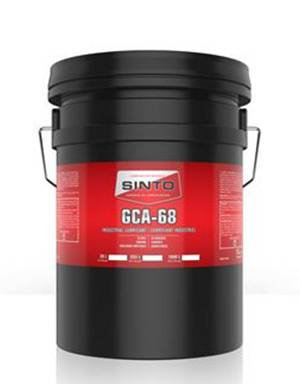Nov . 09, 2024 12:18 Back to list
Creating a New Deck for Enhanced Presentation and Collaboration
Understanding the PP Board A Versatile Material for Various Applications
In recent years, the use of polypropylene (PP) boards has gained significant attention across various industries due to their versatility, durability, and environmental advantages. PP boards are made from polypropylene, a thermoplastic polymer known for its excellent chemical resistance, lightweight nature, and structural integrity. This article aims to explore the characteristics, advantages, and various applications of PP boards, highlighting why they have become a popular choice in numerous sectors.
Characteristics of PP Boards
PP boards exhibit several notable characteristics that make them ideal for a wide range of uses. Firstly, they possess excellent chemical resistance, allowing them to withstand exposure to acids, bases, and various solvents without degrading. This property makes them suitable for use in laboratories, chemical storage facilities, and pharmaceutical applications. Additionally, PP boards are waterproof, making them an excellent choice for outdoor applications or environments prone to high humidity.
Another important aspect of PP boards is their lightweight nature. Compared to traditional materials like wood and metal, PP boards are significantly lighter, making them easier to handle and transport. This quality not only reduces shipping costs but also simplifies installation processes, particularly in projects requiring large panels or sheets.
Moreover, PP boards come in various thicknesses, colors, and finishes, providing flexibility for designers and manufacturers. The surface of PP boards can be easily printed on, embossed, or laminated, allowing for customization in branding and aesthetics. This adaptability makes PP boards an attractive option for businesses looking to create visually appealing products.
Advantages of PP Boards
One of the most significant advantages of PP boards is their environmental impact. As a recyclable material, PP can be repurposed and reused, contributing to sustainable practices in manufacturing and product design. Many companies are making a conscious effort to reduce their carbon footprint by choosing materials like PP that align with environmental regulations and initiatives.
Furthermore, PP boards are resistant to UV radiation, ensuring that they maintain their structural integrity and appearance over time, even when exposed to sunlight. This durability means that PP boards do not easily fade or become brittle, providing long-lasting performance indoors and outdoors.
pp board

Additionally, PP boards exhibit excellent impact resistance, making them suitable for demanding applications where traditional materials might fail. This characteristic is particularly beneficial for industries such as construction, automotive, and packaging, where strong yet lightweight materials are essential.
Applications of PP Boards
The versatility of PP boards is reflected in their wide-ranging applications across multiple sectors. In the construction industry, PP boards are frequently used for lightweight wall panels, insulation, and temporary structures. Their ease of installation, coupled with their durability, makes them a preferred choice for contractors looking to reduce labor costs and improve project efficiency.
In the manufacturing sector, PP boards are often utilized in packaging solutions. Their resistance to moisture and chemicals makes them ideal for protective packaging, storage containers, and customizable display solutions. The ability to print directly onto PP boards also allows businesses to create eye-catching packaging that enhances brand visibility.
The furniture industry has also embraced the use of PP boards due to their lightweight nature and design versatility. From office furniture to decorative pieces, PP boards can be molded into various shapes and sizes, offering designers the freedom to innovate without compromising on strength.
Furthermore, in the agricultural sector, PP boards are used for greenhouse construction, storage bins, and trays for seedlings, demonstrating their adaptability in diverse environments.
Conclusion
In summary, PP boards represent a valuable resource for industries seeking durable, environmentally friendly, and versatile materials. Their exceptional properties, ranging from chemical resistance to lightweight design, make them suitable for countless applications. As industries continue to prioritize sustainability and efficiency, the demand for PP boards is likely to grow, solidifying their position as a top choice in material innovation. With ongoing advancements in production techniques and an increasing focus on eco-friendly practices, the future of PP boards looks promising, paving the way for new possibilities across various sectors.
-
HDPE Natural Sheet: Durable, Food-Grade & Versatile Plastic Solutions
NewsAug.27,2025
-
Durable Glossy PVC Rigid Sheet | Premium High-Shine Panels
NewsAug.26,2025
-
Durable PP Rigid Sheet: Lightweight, Chemical Resistant Solutions
NewsAug.21,2025
-
PVC Grey Sheet for Extraction: Chemical Resistant & Durable
NewsAug.19,2025
-
Durable PVC Pipe Fittings for Plumbing & Irrigation Needs
NewsAug.18,2025
-
HDPE Steel Belt Reinforced Spiral Corrugated Pipe | High Strength
NewsAug.17,2025

